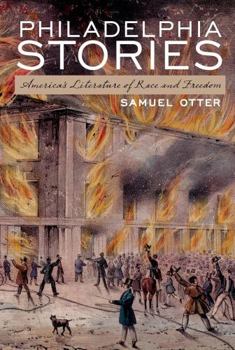Philadelphia Stories
Select Format
Select Condition 
Book Overview
A historic and symbolic city on the border between slavery and freedom, antebellum Philadelphia was home to one of the largest and most influential "free" African American communities in the United States. The city was seen by residents and observers as the stage on which the possibilities of freedom would be tested and a post-slavery future would be played out for the nation. Philadelphia's charged setting produced a distinctive literary tradition that confronted issues of race, character, violence, and liberty. Verbal performance and social behavior assumed the weight of race and nation. The city's social experiments would have international consequences. This account of Philadelphia's literary history from 1790 to1860 brings together writers familiar (Charles Brockden Brown, Edgar Allan Poe, John Edgar Wideman), lesser known (Hugh Henry Brackenridge, George Lippard, Frank J. Webb), and obscure (Mathew Carey, Robert Montgomery Bird, William Whipper, Joseph Willson). It draws on a host of diverse, often discounted expressive forms, from fever accounts and metempsychic fiction to caricatures and book covers. Samuel Otter's authoritative study considers the significance of geographical, social, and literary "place." It offers a model for thinking about the relationships between literature and history and among European-American and African-American writers. It challenges conventional narratives of American literary history. And finally, it establishes Philadelphia as fundamental to our understanding of not only the political but also the imaginative life of nineteenth-century America.
Format:Hardcover
Language:English
ISBN:0195395921
ISBN13:9780195395921
Release Date:April 2010
Publisher:Academic
Length:408 Pages
Weight:1.60 lbs.
Dimensions:1.5" x 6.4" x 9.2"
Customer Reviews
0 rating





